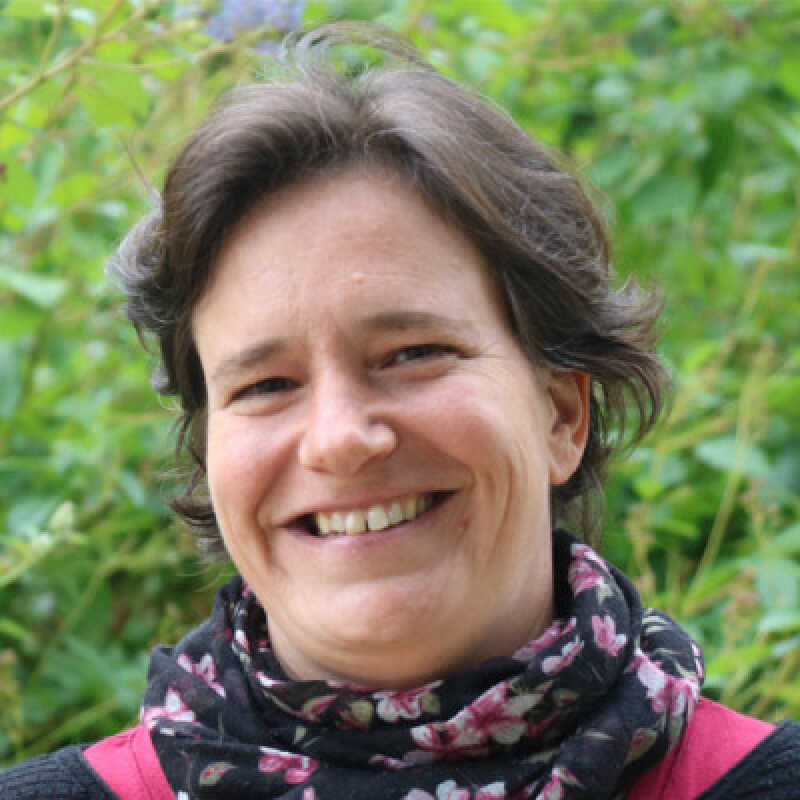- University of Kent
- School of Anthropology and Conservation
- People
- Dr Tatyana Humle
Dr Tatyana Humle
Head of School


Dr Tatyana Humle is a zoologist by training (BSc in Zoology at the University of Edinburgh, Scotland) and completed her PhD in the Department of Psychology at the University of Stirling in 2004. Tanya was then granted a NIMH Postdoctoral Research Fellowship at the Department of Psychology based at the University of Wisconsin, Madison, USA (2004-2007) before taking on a position as an Associate Professor with the Primate Research Institute and the Wildlife Research Centre at the University of Kyoto, Japan (2007-2010).
Dr Humle joined the School of Anthropology at the University of Kent in 2010 and DICE in 2012. She has been conducting fieldwork on wild chimpanzees (Pan troglodytes verus) in West Africa, both habituated and non-habituated individuals, since 1995, and has been working collaboratively with African Great Ape sanctuaries since 2008.
Dr Humle's main research focuses on understanding how great apes adapt to environmental change and manage life in anthropogenic landscapes shaped by small- and large-scale development, identifying drivers of tolerance and attitudes toward wildlife, and developing and evaluating mitigation schemes aimed at improving co-existence between non-human great apes and people. Tanya is also interested in great ape rehabilitation and reintroduction with the aim to improve both welfare and conservation objectives for the species.
Dr Humle also nourishes a keen research interest in the study of learning and culture in non-human animals, with a special focus on primates, the respective roles of the social and physical environment on learning in young, inter- and intra-community behavioural differences in chimpanzees, and behavioural ecology and cognition.
Tanya has been an active member of the executive committee of the IUCN (The International Union for the Conservation of Nature and Natural Resources) Section on Great Ape Conservation (SGA) of the Primate Specialist Group since its inception.
Dr Tatyana Humle is a member of the Durrell Institute of Conservation and Ecology.
Great ape rehabilitation and reintroduction
The chimpanzee sanctuary in the Parc National du Haut Niger (PNHN) in Guinea is managed by the Chimpanzee Conservation Center (CCC), a founding member of the Pan African Sanctuary Alliance (PASA). The CCC currently holds more than 40 chimpanzees, primarily all victims of the pet trade.
The PNHN, which extends over ca. 10,000 square kilometres, is one of the last remaining important formations of dry forest-savanna mosaic in West Africa and a site of high conservation value for both ungulates and wild chimpanzees (Pan troglodytes verus). This park also harbours leopards (Panthera pardus) and a small remnant population of lions (Panthera leo).
Based upon the IUCN reintroduction guidelines, PASA approved the release of a group of twelve chimpanzees from the CCC in the PNHN. These chimpanzees were released in June 2008, 32 km from the sanctuary. A further five chimpanzees were added to the core release group in August 2011.
Dr Humle's role as scientific advisor and research coordinator with the CCC focuses primarily on the following three areas:
Principle Collaborators
This project aims to contribute to the improving survey methodologies of wild chimpanzees in degraded landscapes harbouring oil palms and propitious to agricultural development, and to further our understanding of the reliance of chimpanzees on the oil palms in such areas. It aims to achieve this by using unmanned aerial vehicles (UAV) and camera traps. This study also seeks to test the value of using UAV technology to improve survey efficiency of chimpanzees in such landscapes.
Funding: ARCUS Foundation
Principle Collaborators: Tacugama Chimpanzee Sanctuary; Autonomous University of Barcelona, Spain
A study, led by Dr Humle and Dr Alexandre Konate in 2010-11 (in prep.) across four focal villages in the HNNP and the town of Faranah which abuts the park, indicated that, although there has been a decrease in the biomass in wild-meat off-take, there has also been an increase in the diversity of species hunted and a shift to smaller prey size and so-called ‘pest’ species.
More primate species are being hunted and primates (with the exception of chimpanzees for now) contribute a significantly greater proportion of the wild-meat available on markets compared with the mid-nineties and early noughties. This study also identified all stakeholders involved in the wild-meat trade and market chains used to channel wild-meat to urban centres. A new survey is required to evaluate the current situation, but, most crucially, a better understanding of the key drivers of wild-meat hunting and trade is urgently needed.
The proposed study primarily aims not only to replicate Konate and Humle’s study but also to apply the newly developed Wild-meat Toolkit developed by Josephine Head/Arcus Foundation which aims to identify drivers and factors influencing wild-meat hunting and trade across focal localities. A secondary objective of this study is to help improve the application and implementation of the Wild-meat Toolkit in francophone countries and its usage by national conservation practitioners in-country.
Broader application of the Toolkit will favour a wider understanding of key factors and drivers across differing scales, e.g. local, national and regional, which is key to developing sound and effective strategies aimed at promoting sustainable hunting practices and protein-alternative schemes.
Funding: ARCUS Foundation
Principle Collaborators: Dr. Alexandre Konate; ISAV, Faranah, Republic of Guinea and the Office of Protected Areas of Guinea (OGUIPAR); the local HNNP authorities and HNNP director; and the Chimpanzee Conservation Centre (CCC).
Dr Humle is interested in supervising PhD students in the fields of primate conservation, rehabilitation and reintroduction, and on issues pertaining to human–wildlife interactions, especially relevant to the impact of extractive and agricultural activities on great apes.
Current
Alumni
Member of/Appointments
Loading publications...
Showing of total publications in the Kent Academic Repository. View all publications